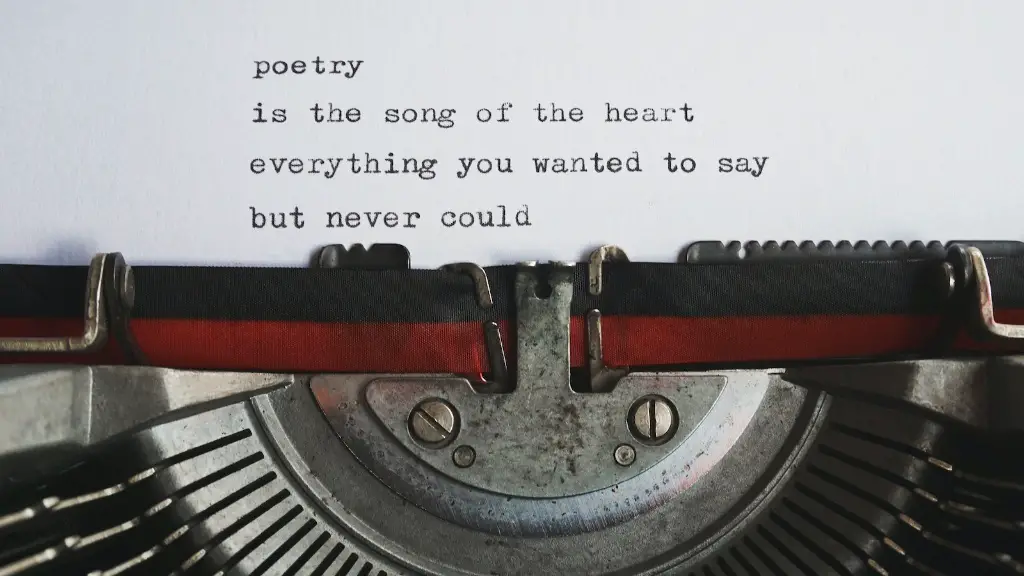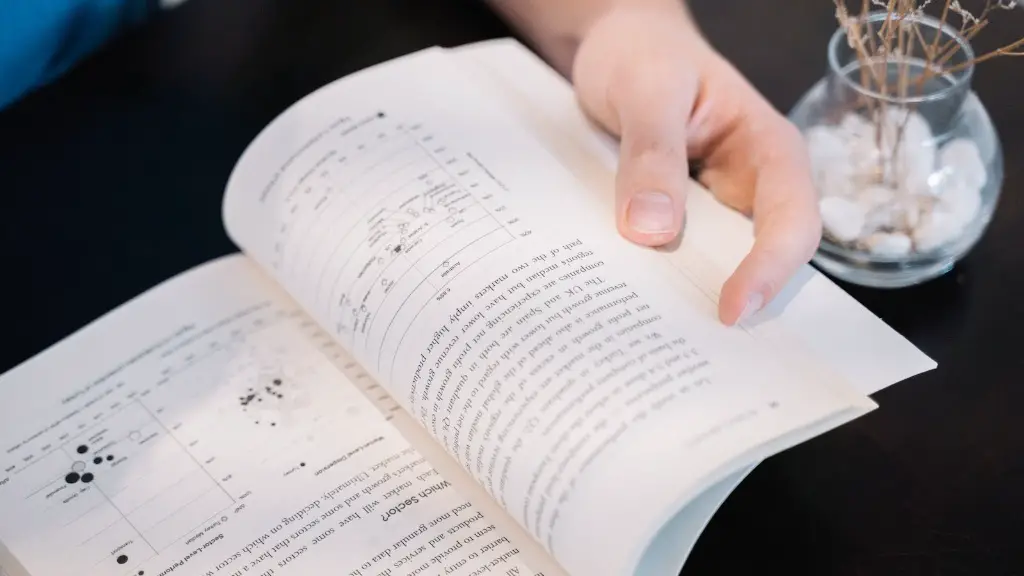Poetry has been around since ancient times, and it’s still used today as a powerful form of creative expression. Whether you’re writing to explore your feelings or simply to express them to someone else, poetry can help you do that and more. We’ll explore the ways poetry can help connect emotions to words and actions, and why this emotional connection is so important.
When you write poetry, you take the time to come up with ideas and craft words, phrases and metaphors that create a story or emotion. This process of going from blank page to a complete piece of writing requires a lot of thought and consideration as you pick out the words most suitable for expressing how you feel. You can also use certain literary devices – like rhyme, rhythm and imagery – to create a deeper emotional connection between the reader and the poem.
Poetry can also help us understand our own emotions, and how we express them. It’s not always easy to articulate how you feel – it’s often even harder to put it into words that make sense. This is why poetry can be so useful – it helps us break down our feelings, so we can gain some clarity on our innermost feelings and find ways to express them.
But words are more powerful than we think – they can have a lasting effect on how we process emotions, as well. This is why writing poetry can be so helpful; it give us time to reflect on the emotions and situations we might be dealing with and encourages us to use language to express it. The process of writing poetry gives us a creative outlet to explore feelings and find clarity. Writing poetry can also help us develop a better understanding of ourselves, by giving us the opportunity to investigate our feelings.
In addition to being therapeutic, poetry can also be used to bring light to social issues. Many poets use their work to protest, protest for change and stand up for what they believe. This type of poetic protest can spark conversations, ignite passion and drive people to take action. It can be a powerful tool to express how we feel about serious matters and to help create a sense of community.
Finally, poetry can also be a powerful tool for healing. From loss and grief to difficult life experiences, poetry gives us a way to express our emotions when words fail. It can provide comfort and empathy, and even give us the power to come out of difficult situations stronger.
Educating the Audience through Poetry
Poetry can be used to inform and educate an audience. This can be done through stories, themes and topics found in contemporary poetry. Poetry offers a unique way of reaching an audience and conveying a message. Through carefully chosen words and phrases, a poet can inform the public of an important issue and garner support for a cause. Poetry can be an effective tool to get people’s attention and to influence the masses.
Spoken word poetry is especially effective in this regard. Spoken word poets often use performance as a way to get their message to the public. Through their unique style of communication, spoken word poets can enthrall an audience and educate them about social issues. Spoken word poets are often seen as activists and their work is an effective way to engage people in a movement or to bring attention to a cause.
In addition to using poetry for activism, poets can also use their work to educate the audience on history, science and any other field of study. By combining education and entertainment, poets can ensure that there is relevance to their work and that it resonates with the audience. In this way, poetry can help to nurture intellectual curiosity and inspire people to learn and explore.
The Impact of Poetry on Mental Health
Another way that poetry can help express feelings is by its positive impact on mental health. Writing and reading poetry can be a great way to take a break from everyday stressors and to give some time and attention to our mental health. Studies have shown that expressive writing, like poetry, can reduce psychological distress, ease anxiety, and boost emotional wellbeing.
It can also be an effective form of therapy that helps to manage painful or difficult emotions that may otherwise be hard to express. Through the use of language, poetry can create an emotional response in the reader and provide comfort when words fail. When we read or write a poem that reflects our feelings, we’re able to process our emotions more effectively and in a way that can be constructive and beneficial.
Writing poetry can also be a great way to keep a diary of our experiences and emotions. It can be used to document our journey and to track our progress over time. We can look back at our poems and reflect on our emotions and how we’ve moved past them. In this way, writing poetry can be a valuable therapeutic tool, allowing us to work through our feelings and create a space for self-reflection and growth.
Healing Through Poetry
When faced with an emotional or physical trauma, many people turn to poetry for healing. Writing and reading poetry can be a great way to express how we’re feeling, to process difficult emotions and to find comfort in our own words. By crafting poems inspired by our experiences and feelings, we can gain a deeper understanding of ourselves and explore our emotions in a creative way.
When we write down our feelings in a poem, it can offer a safe outlet to explore them and can help to alleviate some of the burden of our experiences. Writing poetry can give us the space to confront our pain, gain clarity on our emotions, and can set us up to work through our feelings in a meaningful way.
In addition, reading poetry can also be beneficial to our mental health. When we read poems that are inspired by the same experiences or emotions we’re dealing with, it can provide us with a sense of understanding and connection. It can also help us to gain perspective and to find comfort in the power of words.
The Power of Poetry
Poetry is one of the most powerful forms of expression. It can help us express how we’re feeling, to process our emotions, to heal from difficult experiences, to educate others and to bring attention to important causes. Through language, imagery and performance, poetry can be used to connect to an audience, drive conversation and create a space of understanding.
Writing a poem can be an effective way to process difficult emotions and find clarity. It can also be an effective tool for healing and helping us to move through trauma. By expressing ourselves through poetry, we can gain insight into our own emotions and connect with others in a meaningful way.
Reading poetry can be another powerful way to cope with difficulty. It can provide us with comfort, understanding and an emotional connection with the poem and poet. Poetry is unique in its ability to evoke deep emotions and to make us think critically about the world and our place in it.
The Emotional Impact of Poetry
Finally, poetry has the power to elicit powerful emotions in the reader. It can bring comfort, inspire empathy and understanding, and can be a valuable tool for self-reflection and growth. Poetry can help us to make sense of beliefs, feelings, and experiences, and can show us the beauty of language and the power of words.
When we read a poem that expresses a sentiment that resonates with us, we gain insight into our innermost emotions. This can be an incredibly powerful experience and one that can leave us feeling heard and understood. A poem can also evoke strong emotions in us and help to bring clarity on how we feel and how to move forward in difficult times.
Like all forms of expression, poetry can be incredibly powerful and meaningful. It can be a great way to explore our feelings and find clarity. Through the use of language, emotion and perspective, poetry can be an effective tool for expressing ourselves and connecting with one another.
Conclusion
Poetry is one of the oldest and most powerful forms of creative expression and can be used to express feelings in a powerful and meaningful way. It can be therapeutic and healing, a tool for activism and education, and has the power to evoke powerful emotions in the reader. Poetry can provide us with a way to explore our feelings and to find clarity, and can be an effective tool for self-reflection and growth.





